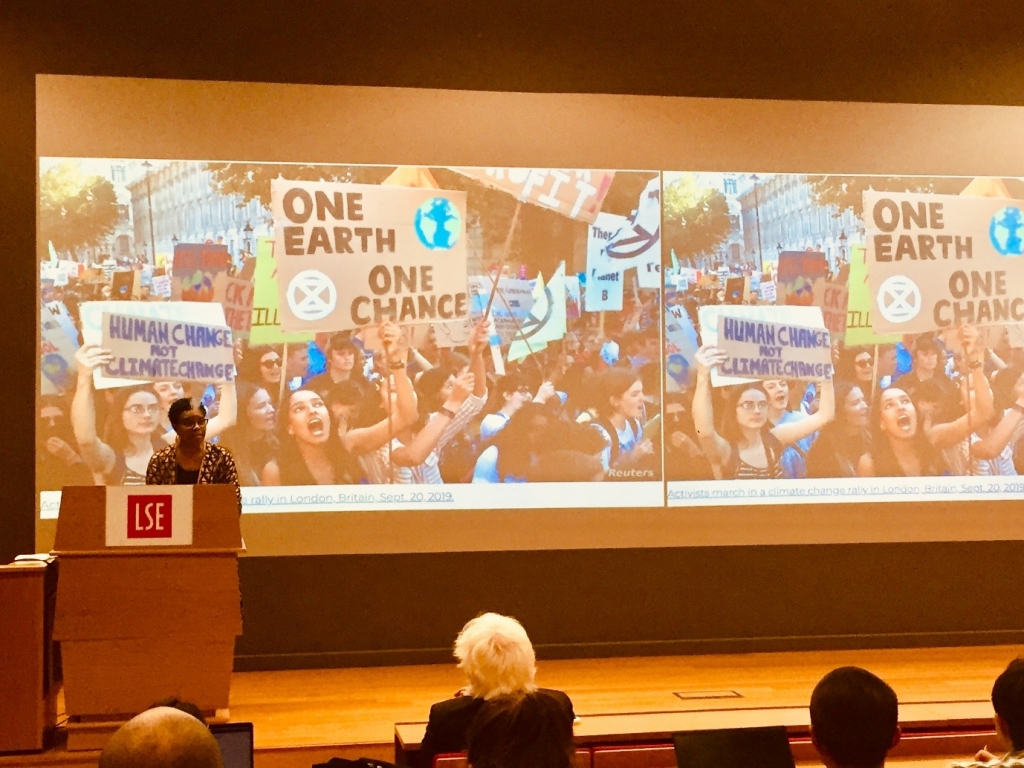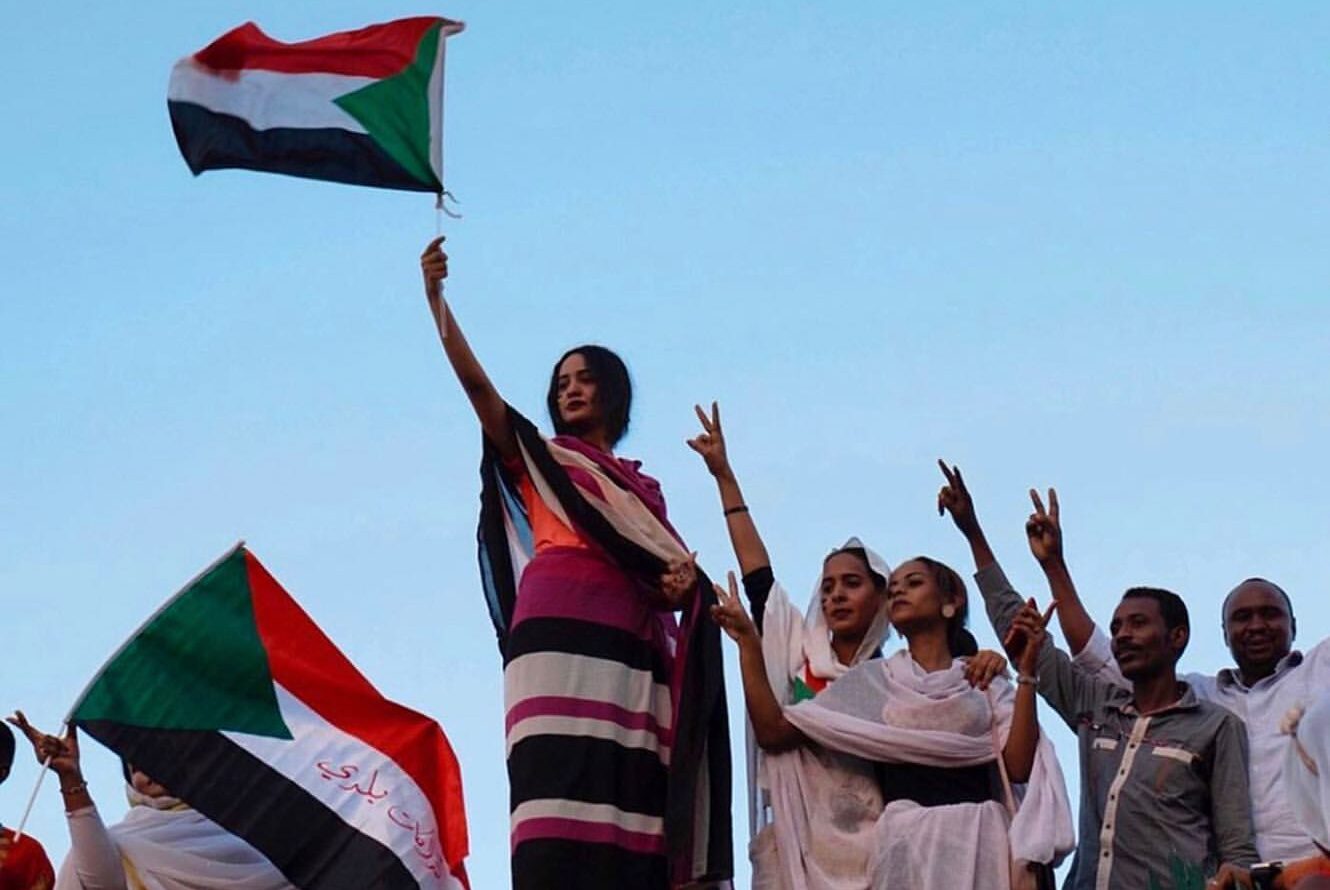MSc Development Management student, Faith Akor, covered the recent guest lecture from Alcinda Honwana, Strategic Director at the Firoz Lalji Centre for Africa, as part of the Cutting Edge Issues in Development Thinking and Practice lecture series. Faith gives her reflections on the lecture and tells us what she took away from the event.
The growing population of youth world over is no longer news. Nevertheless, the statistics startle and present a compelling picture. 1.2 billion young people currently account for 16 percent of the world’s population and this number is expected to grow to 1.3 billion by 2030. In Sub-Saharan Africa, nearly 20 percent of the population is between the ages of 15 and 24 (UN World Population Prospects 2017). It is within this picture that Alcinda Honwana situates her thought-provoking discourse on youth politics and social movements which she bases on three strong assertions.

First, she establishes that young people are in a prolonged stalemate period between childhood and adulthood wherein they are neither wholly dependent on their parents nor fully autonomous. Despite passing age, they are unable to attain the social and economic markers of adulthood. She calls this state waithood, waiting for adulthood. Next, she states that the recent wave of protests has been influenced by the prolonged pressure on young people. And finally, she asserts that though these youth-led social movements have overthrown regimes, they have been less successful in inducing systemic changes which take time and cannot be achieved simply by a change in leadership.
She sets the stage for a better contextual situation of youth unrest by citing numerous examples of youth uprisings around the world. For instance, the unprecedented Algerian protests which began in February 2019 and prompted the successful ousting of then president Abdelaziz Bouteflika in April 2019 after a 20-year long rule. This development triggered speculations of a “New Arab Spring” in light of similar happenings in Sudan which led to the removal of Omar Al-Bashir. However, this phenomenon is not unique to the Arab world as examples abound globally of citizens uniting to demand for change in the UK, Hong Kong, Kampala, Chile and India, but to mention a few.
The picture painted by both her words and the vivid visual images on her slides imprints a lasting imagery on the mind which drives home her point: young people in both rich and poor countries are tired of being affected by socioeconomic and political exclusion and diminishing future prospects. As a result, they are clamouring for emancipation.
Young people, unable to attain the decency and self-worth associated with the ability to provide for themselves and their families are now being coerced into alternative and sometimes unconventional sources of livelihood such as blogging and other forms of new media engagements, entrepreneurship, sex work and membership of fundamentalist groups such as the Boko Haram in West Africa. Alas, there are indistinct boundaries between right and wrong and lawful and unlawful in these “youthscapes”. In the West, issues of increased unemployment and less access to quality education and means of social livelihoods are compounded by racial and class divides.
But amidst these feelings of powerlessness and exclusion, young people are beginning to realize that they can be a vehicle for change. And while it is too early to ascertain whether this generation will engineer radical and entrenched systemic change especially in view of their difficulty in sustaining momentum beyond street protests, it is obvious that they are discontent with the status quo and are beginning to confront the conventions.
Alcinda’s exposition leaves much to think about, particularly in light of the prospects of a new way of doing politics with the advent of social media and the increasing role the media plays in shaping the dialogue between the state and the governed. A more than befitting culmination is her closing quote by Frantz Fanon:
” Each generation must, out of relative obscurity, discover its mission and fulfil it or betray it.”
Don’t forget to join us this Friday for our fourth Cutting Edge Issues in Development Thinking and Practice lecture with guest speaker Pallavi Roy who will give a talk on “Digital Identities: Asymmetric Power, Asymmetric Information and the Paradox of Adverse Outcomes”. Friday 1 November, 4-6pm in the Sheikh Zayed Theatre. External guests please register via: https://bit.ly/2kvbH69.
Faith Akor is an MSc Development Management student from Nigeria with a Bachelor’s degree in Economics from Covenant University. Her research interests include governance, public sector management and the political economy of development.
The views expressed in this post are those of the author and in no way reflect those of the International Development LSE blog or the London School of Economics and Political Science.





